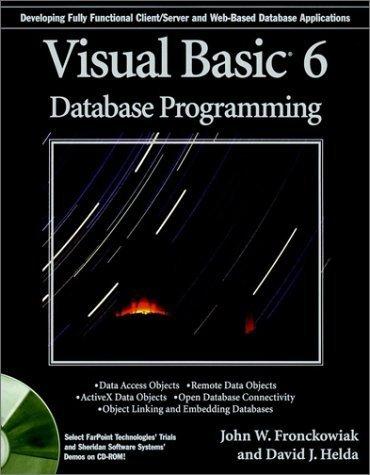Question
This is for Compplex nummber in Eng. I need the Pseudocode list of this code: MAIN.CPP //Declaration of class Complex //defined in Complex.cpp #include #include
This is for Compplex nummber in Eng.
I need the Pseudocode list of this code:
MAIN.CPP
//Declaration of class Complex
//defined in Complex.cpp
#include
#include
#include "Complex.h"
using namespace std;
int main()
{
Complex c1(0,0);
Complex c2(1,2);
Complex c3(8,2);
Complex c4(5,-3);
cout << "HW#8 Complex Numbers in Engineering ";
cout << "Author: Nauman Zubair ";
cout << "Initial Values ";
cout << "c1: ";
c1.print();
cout << setw(10) << "c2: ";
c2.print();
cout << " Assignment Operator c1 = c2" << setw(5);
c1 = c2;
cout << setw(17) << "c1: ";
c1.print();
cout << " Initial Values";
cout << " c3: ";
c3.print();
cout << setw(10) << "c4: ";
c4.print();
cout << " Overloaded + operator ";
Complex c5 = c3 + c4;
cout << "c4 + c3: ";
c5.print();
cout << " Overloaded - operator";
cout << " c4 - c3: ";
c5 = c4 - c3;
c5.print();
cout << " Overloaded * operator";
cout << " c3 * c4: ";
c5 = c3 * c4;
c5.print();
cout << " Overloaded / operator";
cout << " c3 / c4: ";
c5 = c3 / c4;
c5.print();
cout << " = ";
c3.print();
cout << " / ";
c4.print();
cout << " Overloaded || operator";
cout << " c1=c2||c3||c4: ";
c1 = c2||c3||c4;
c1.print();
cout << " = ";
c2.print();
cout << " || ";
c3.print();
cout << " || ";
c4.print();
cin.get();
cin.get();
}
Declaration of class Complex
Complex.h
#ifndef COMPLEX_H
#define COMPLEX_H
class Complex
{
public:
Complex(double, double);
Complex operator+(const Complex &) const;
Complex operator-(const Complex &) const;
Complex operator*(const Complex &) const;
Complex operator/(const Complex &) const;
Complex operator||(const Complex &) const;
void print() const;
private:
double real;
double imaginary;
};
#endif // COMPLEX_H
Complex.cpp Function Definition
#include "Complex.h"
#include
#include
#include
using namespace std;
Complex::Complex( double realPart, double imaginaryPart )
: real ( realPart ), imaginary( imaginaryPart )
{}
Complex Complex::operator+( const Complex &operand2 ) const
{
return Complex( real + operand2.real, imaginary + operand2.imaginary );
}
Complex Complex::operator-( const Complex &operand2 ) const
{
return Complex ( real - operand2.real , imaginary - operand2.imaginary );
}
Complex Complex::operator*( const Complex &operand2 ) const
{
return Complex( real * operand2.real - imaginary * operand2.imaginary ,
imaginary * operand2.real + real * operand2.imaginary );
}
Complex Complex::operator/( const Complex &operand2 ) const
{
return Complex( (real * operand2.real + imaginary * operand2.imaginary) /
(operand2.real * operand2.real + operand2.imaginary * operand2.imaginary),
(imaginary * operand2.real - real * operand2.imaginary)/
(operand2.real * operand2.real + operand2.imaginary * operand2.imaginary) );
}
Complex Complex::operator||( const Complex &operand2 ) const
{
return (*this * operand2)/(*this + operand2);
}
void Complex::print() const
{
cout << "(" << real << setprecision(2) << fixed << ",";
imaginary >= 0? cout << " j": cout << " -j";
cout << abs(imaginary) << setprecision(2) << fixed << ")";
}
Step by Step Solution
There are 3 Steps involved in it
Step: 1

Get Instant Access to Expert-Tailored Solutions
See step-by-step solutions with expert insights and AI powered tools for academic success
Step: 2

Step: 3

Ace Your Homework with AI
Get the answers you need in no time with our AI-driven, step-by-step assistance
Get Started


